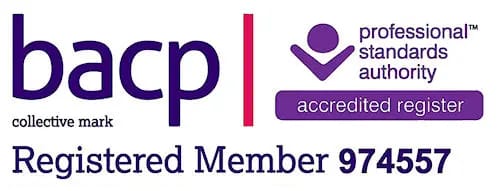BACP Ethical Framework
As a member of BACP I must work in accordance with their Ethical Framework. You be certain that I will commit to complying with the framework at all times.
BACP Ethical Framework for the Counselling Professions
The BACP Ethical Framework provides a set of principles, values, and guidelines for members of the British Association for Counselling and Psychotherapy (BACP). It ensures high professional and ethical standards in counselling and psychotherapy, safeguarding clients’ welfare while maintaining practitioners’ accountability.
- Introduction
The framework serves as a guiding document for ethical decision-making and professional conduct within counselling and psychotherapy. It emphasizes that all BACP members must adhere to these standards to maintain their membership and credibility.
- Commitment to Clients
The framework prioritises clients’ welfare and trust. Practitioners are expected to:
- Put clients first by making them the primary focus.
- Work within professional standards by maintaining competence, keeping skills updated, and ensuring personal well-being.
- Show respect by valuing client uniqueness, maintaining confidentiality, and collaborating with them.
- Maintain integrity by being honest about qualifications and methods.
- Demonstrate accountability and openness regarding risks and adverse incidents.
- Ethical Principles and Values
Ethical practice is grounded in core values, such as respect for human rights, enhancing well-being, and ensuring fairness in service delivery. It is guided by six principles:
- Trustworthiness: Building and maintaining trust.
- Autonomy: Respecting clients’ self-governance.
- Beneficence: Promoting clients’ well-being.
- Non-maleficence: Avoiding harm to clients.
- Justice: Ensuring fair and equal treatment.
- Self-respect: Maintaining personal integrity and professional boundaries.
Practitioners must also embody personal moral qualities, such as empathy, integrity, fairness, humility, and resilience.
- Good Practice Guidelines
The framework outlines best practices for ethical counselling:
- Building an Appropriate Relationship: Clearly defining expectations, setting professional boundaries, and avoiding exploitation.
- Confidentiality: Safeguarding client information and only disclosing it when necessary (e.g., to prevent serious harm).
- Professional Standards: Keeping skills updated, maintaining accurate records, and working within legal requirements.
- Supervision and Accountability: Engaging in professional supervision to maintain ethical practice.
- Training and Education: Ensuring high-quality training for both educators and trainees.
- Research: Conducting ethically sound research that protects participants’ rights.
- Handling Ethical Dilemmas
Practitioners are expected to anticipate ethical challenges and use supervision, discussion, and ethical decision-making models to resolve dilemmas. They should be transparent about their decisions and open to scrutiny.
- Care of Self as a Practitioner
Self-care is essential for sustaining ethical practice. Practitioners should:
- Maintain a healthy work-life balance.
- Seek support when needed.
- Monitor their physical and mental well-being to ensure they can provide effective services.
Conclusion
The framework emphasises ethical responsibility, professional integrity, and client-centred care.
Practitioners must actively engage with ethical issues, strive for high standards, and remain accountable for their actions.

